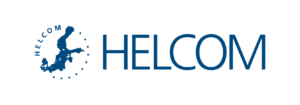The 35th Annual Meeting of closed yesterday evening after reviewing the current and relevant key issues related to regional policy-making on Baltic marine environment. The Annual Meeting, involving HELCOM member parties which consist of all the Baltic coastal nations and the EU, is the highest decision-making body of HELCOM and explores the yearly developments concerning eutrophication, hazardous substances, biodiversity and maritime activities. This year’s Meeting started with a special festive flavor with the 40th Anniversary celebrating the signing of the 1974 Helsinki Convention, providing the basis for HELCOM work. The Meeting decided yesterday on necessary steps in order to develop a Regional Action Plan on marine litter by 2015, as agreed by the Ministerial Meeting last October. Marine litter is a broad and critical concern and the Action Plan will form a regional strategy on how to deal with it in a comprehensive way. The Plan will be developed based on information on sources and amounts of marine litter, and it aims to include concrete measures to minimize the presence of marine litter in the Baltic Sea. Its development will be organized through regional workshops and with close involvement of the Contracting Parties. The proposed working plan utilizes the experience from preparing the Regional Action Plan for the North-East Atlantic within OSPAR. Another key topic in the extensive Meeting agenda was the major overhaul of the HELCOM Recommendation on coastal and marine Baltic Sea protected areas. Such protected areas are essential for maintaining biodiversity and ensuring the versatility of ecosystems. The previous similar document, HELCOM Recommendation , was adopted 20 years ago, and the Contracting Parties now agreed on the main changes in the Recommendation with only small aspects pending confirmation shortly. The main reasons for creating the new Recommendation have been the need to update the selection criteria of the marine protected areas, also concerning the newly Red-listed habitats and species; to establish a new database and ensure it is updated; and to re-assess the criteria for both ecological coherence and management aspects. Furthermore, to help reduce harmful nutrients in the Baltic Sea, the Meeting decided in principal to submit a notification on improved sewage reception facilities in Baltic ports to the International Maritime Organization (). Such a submission to IMO meeting will trigger an enforcement of ban on sewage discharges from passenger ships according to the special areas status of the Baltic Sea under the IMO MARPOL convention, which Baltic has been granted as the first sea area in the world following the HELCOM-led process. An overview on current availability of port reception facilities for passenger vessels’ sewage, as well as on passenger traffic trends, are about to be published on HELCOM website. Almost 40 years of successful marine protection of HELCOM has been achieved through constant self-reflection. Yesterday the 35th Annual Meeting endorsed a plan for major deliverables by the organization until 2021 as well as agreed to implement a number of measures for a modernized HELCOM. The new, more streamlined working structure for HELCOM main operational bodies was to a large extent completed, to better reflect the current environmental challenges and obligations of the Contracting Parties. HELCOM will pay more attention in the future to better communicating scientific and technical outcomes to decision-makers as well as the general public. The 35th meeting was chaired by Helle Pilsgaard, Chair of HELCOM. All Meeting documents can be accessed in * * *Note for editors:The Baltic Marine Environment Protection Commission, usually referred to as , is an intergovernmental organisation of the nine Baltic Sea coastal countries and the European Union working to protect the marine environment of the Baltic Sea from all sources of pollution and to ensure safety of navigation in the region. Since 1974, HELCOM has been the governing body of the ‘Convention on the Protection of the Marine Environment of the Baltic Sea Area’, more commonly known as the Helsinki Convention.For more information, please contact:Johanna Laurila Information Secretary HELCOM Tel: +358 40 523 8988 Skype: helcom70 E-mail:
Work starts on Baltic marine litter action plan and other current key issues reviewed on Baltic environmental policies.

